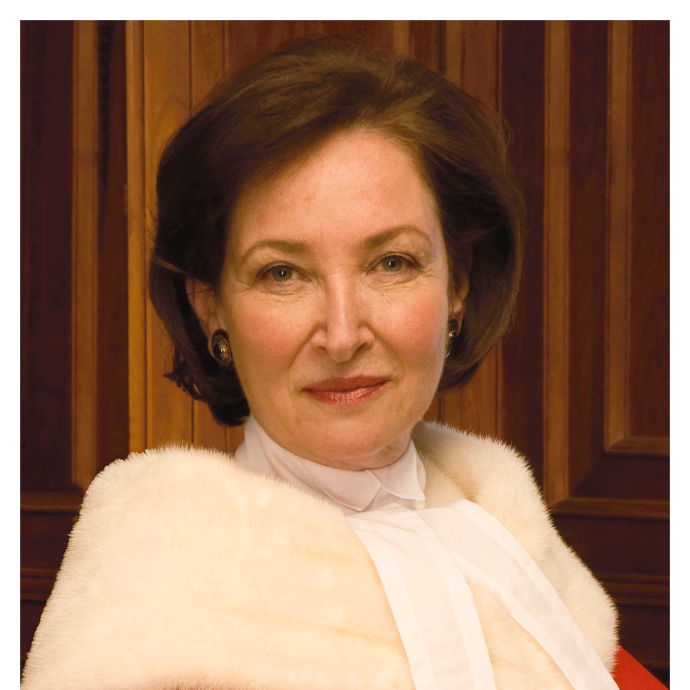
When the Hon. Rosalie Silberman Abella, Justice of the Supreme Court of Canada, delivers her keynote speech to first-year students at the University of Alberta Faculty of Law on September 4, they should prepare for their emotions to be stirred.
Abella became a lawyer partly in response to her father's experience as a Holocaust survivor and refugee whose European law degree was not accepted in Canada because he was not a citizen. Her story is inspirational. So, too, is the mountain of professional triumphs she earned on her way to becoming a Supreme Court judge and a globally admired Canadian.
At age 29, Abella was the youngest person in Canadian history to join the judiciary when she was appointed an Ontario family court judge in 1976. She was its first refugee, too, having emigrated to Canada as a four year old who was born in a displaced persons camp in Stuttgart, Germany.
When she was elevated to the Supreme Court of Canada in 2004, after serving on the Court of Appeal for Ontario for 12 years, Abella became the high court's first Jewish female judge. Today, she is its longest-serving member.
At last count, she holds 39 honorary degrees, including one from Johns Hopkins University this past spring.Three years ago, she received one from Yale, where she is the first Canadian woman and one of only four Canadians to be so honoured - the others were former prime ministers William Lyon Mackenzie King and Lester B. Pearson, and former governor general Vincent Massey.
Underpinning those formidable firsts are Abella's many insightful contributions to administrative, family, constitutional and labour law, and in particular to championing the rights of women and minorities.
In 1984, she coined the term "employment equity" when she wrote a pioneering report as sole commissioner of the federal government's Royal Commission on Equality in Employment.
Her ideas for dealing with the employment barriers for women, Indigenous People, non-whites and people with disabilities stated that equality doesn't mean treating everyone the same, but rather means acknowledging people's differences.
Those views were adopted by the Supreme Court in its first decision on equality rights under the 1982 Canadian Charter of Rights and Freedoms, and were later implemented by the governments of Canada, New Zealand, Northern Ireland and South Africa.
She has lent her legal intellect to a long list of organizations (including as chair of the Ontario Labour Relations Board and the Ontario Law Reform Commission), has been a pioneer in judicial education, and taught law at McGill University for four years.
Additionally, she has enjoyed a lifelong interest in the arts. Before law school, she was one of the youngest graduates of the Royal Conservatory of Music, earning a diploma in piano; more recently she was a judge of the Giller Literary Prize.
Yet it's her words that best describe her career. In November 2016, Abella delivered the keynote speech at the Symposium of the 70th Anniversary of the Nuremberg Trials, in Krakow, Poland.
"Who I am, what I am, what I believe in, and what I hope for, all started with the Holocaust," said the woman whose parents survived separate Nazi concentration camps but lost their two-year-old son and several other close relatives to a third such camp.
A year later, at the commencement address at Brandeis University Abella told students, "Here we are in 2017, watching 'never again' turn into 'again and again … We have a particular duty to wear our identities with pride, to promise our children that we will do everything humanly possible to keep the world safer for them than it was for their grandparents."